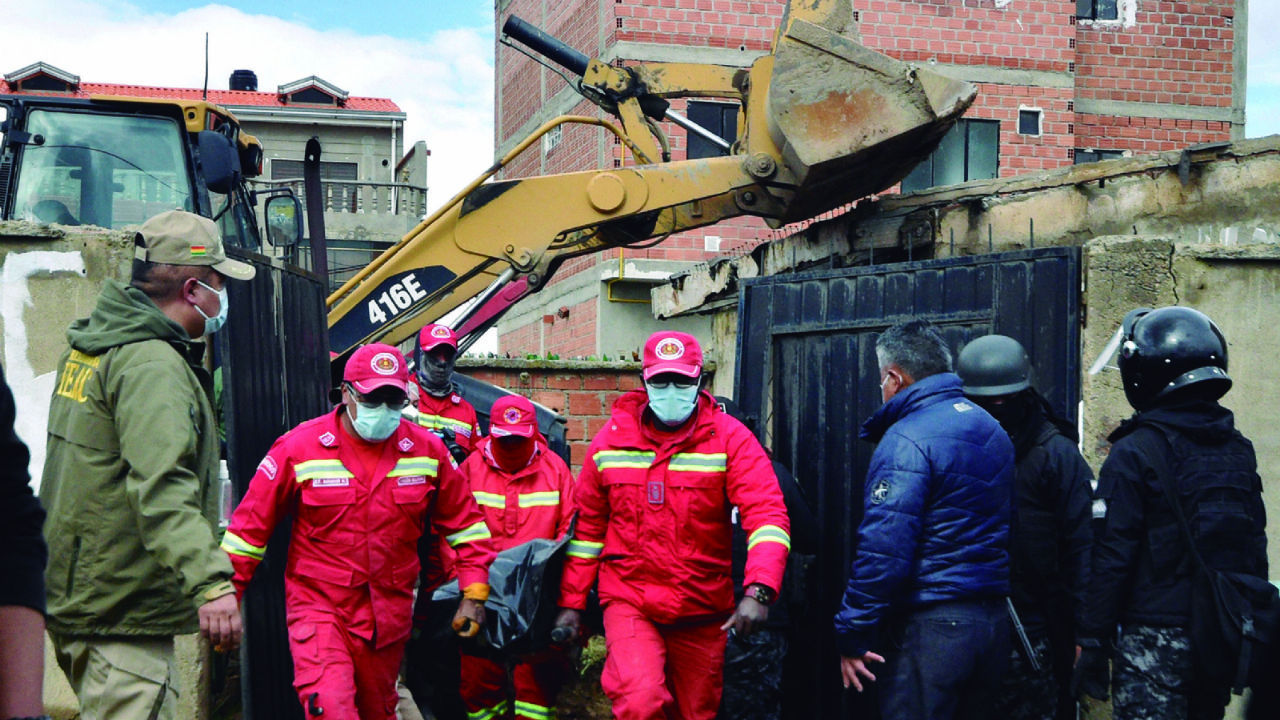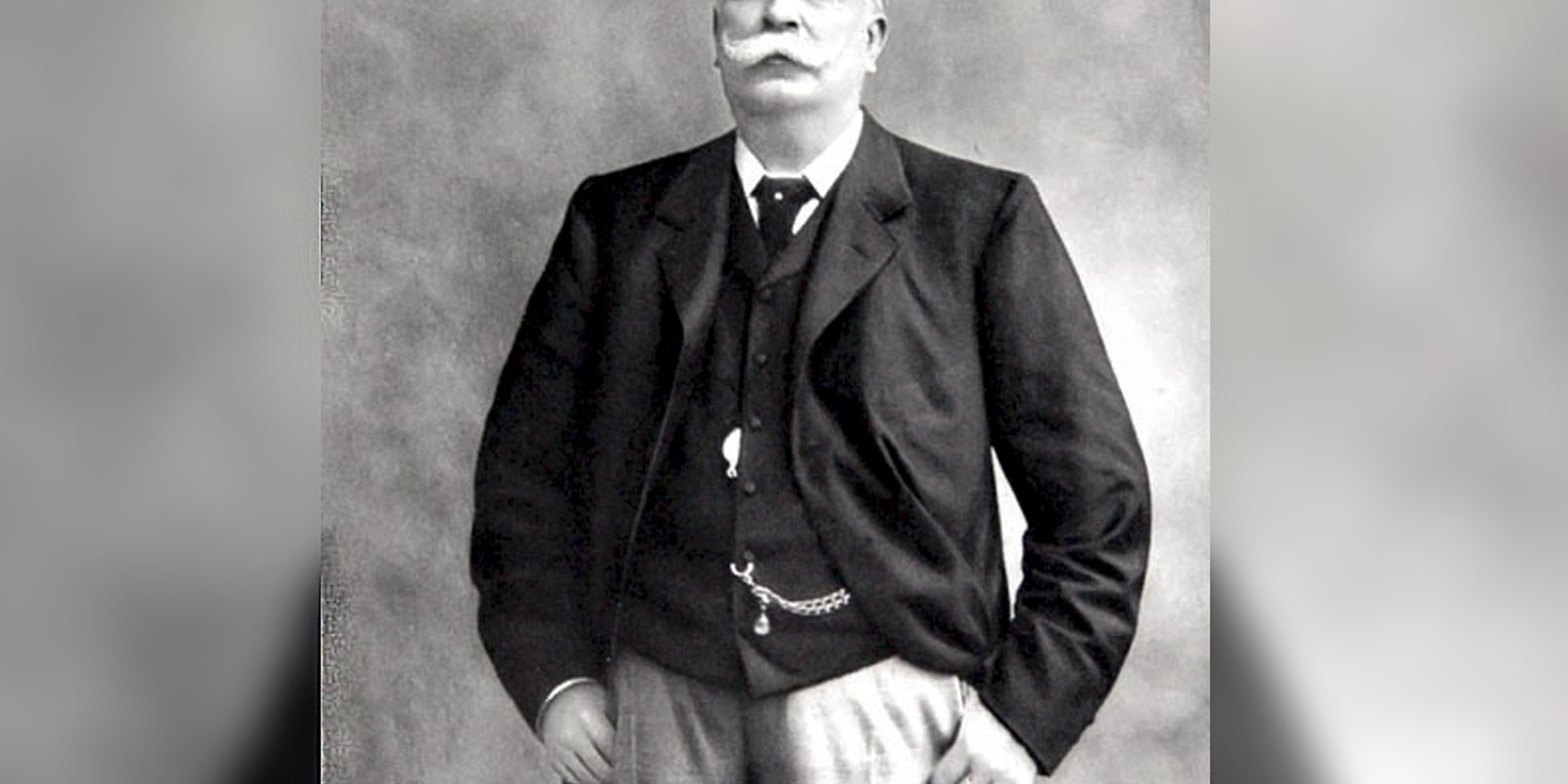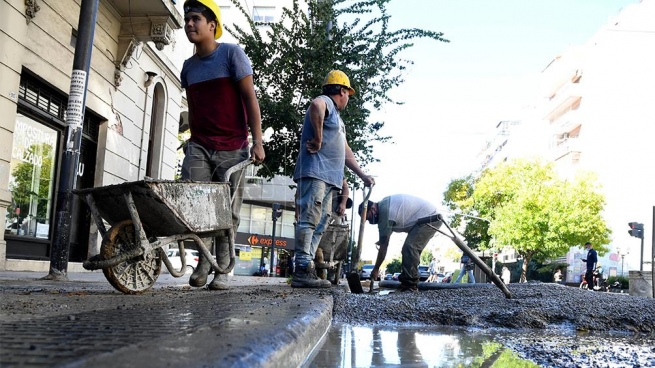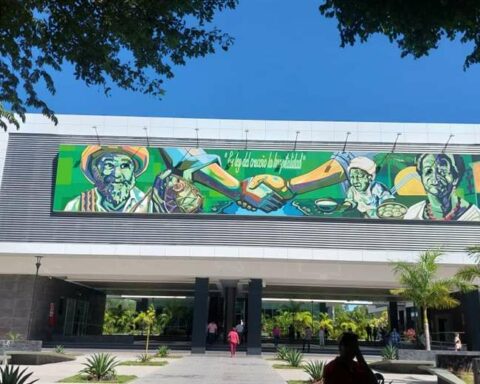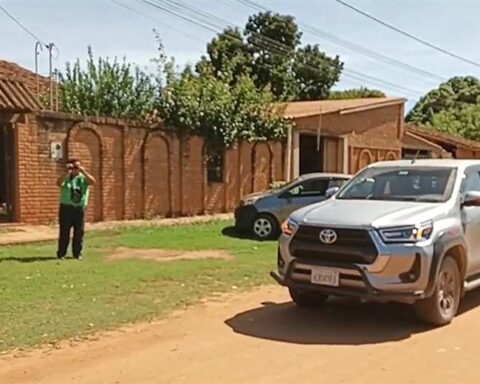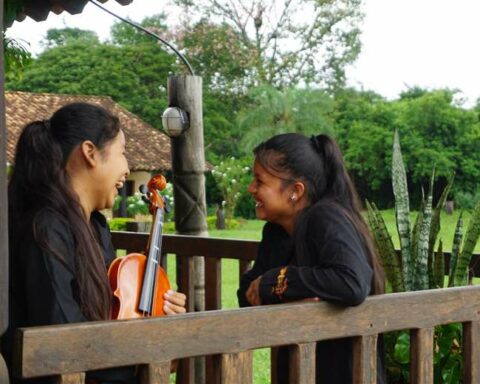Leny Chuquimia / La Paz
Since 2011, 19 highly dangerous killers left at least 70 victims and caused outrage in the country. After the recent registered cases, some sectors ask to open the Penal Code and the Political Constitution of the State to apply life imprisonment in Bolivia, while others affirm that this is not the solution.
“We cannot continue to see that the headlines of the day are murders, femicides, infanticides, dismemberment, parricides and do nothing. A national alert of zero tolerance for violence must be decreed. We ask for a National Council made up of the national and departmental governments; the Ministries of Justice, Government and the Public”, said Senator Erik Morón from Cree.
The legislator presented a petition to the Senate to deal with the draft bill of life imprisonment and chemical castration, which he proposed in September 2021. Said document to date has not been analyzed or discarded.
“The problem is not the penalties,” said María Galindo, from Mujeres Creando, an organization that last Monday called for the march against sexist violence and the corruption of justice.
“Thirty years without the right to pardon is the maximum sentence, many femicides receive it. The problem is the corruption of justice, the ineffectiveness of the Police and the Prosecutor’s Office that does not represent the victims. It is a deep structural problem and the solution does not go through penalties, but through the transformation of the justice apparatus and the Police, which are corrupt,” Galindo told the press.
The president of the Bar Association, Edson Foronada, pointed out that the request to toughen the sentences is legal. He said that it should be given an express law, such as Law 348, which toughened sentences in cases of violence against women and inserted the crime of femicide.
In a previous interview, Susana Saavedra, director of Fundación Construir, explained that it is not possible to apply a life sentence due to the international treaties signed.
three serial killers
One of the most representative cases in the country dates back to December 2011. That year Jaime Cárdenas, 23 years old, was sentenced to 30 years in prison without the right to pardon, in the San Roque prison, in Sucre. He was the author of the rape and murder of Nairobi M. and Marfa D., two university students victimized with a cruelty rarely seen.
The crime was just the latest of many others. According to the authorities, Cárdenas had around 45 victims, while he confessed that he lost count.
The victims were men and women, whom he robbed or raped before killing them. Others were killed in fights and others by order. He did not act alone, he had an ex-police officer as an accomplice and was arrested several times, but he always came out based on bribes.
In 2012 he escaped from the Sucre prison and was recaptured three months later in Beni. Today he is serving his sentence in the Chonchocoro prison, in La Paz.
This first case of the count is very similar to that of the murderer, femicide and rapist Richard Choque, who was arrested a few weeks ago for the murder of the teenagers Iris and Lucy. The crime showed that Choque had already been sentenced to 30 years for Blanca’s murder in 2013, but that he had been released by a judge in 2019.
He was charged with the murder of his cousin, but the case was dismissed. During the time he was free he captured 77 victims, whom he extorted and sexually abused. In the 2013 case, his accomplice, José Casilla, was released and is now under house arrest.
Photo: APG
Five multiple femicides
With three victims, all women in skirts, the femicide Basilio Mamani was arrested on August 27, 2013. His capture, from the discovery of the first body, took 18 months. During that time he attacked two other women.
The bodies were dumped in a jute, they had signs of torture and their braids were tight around the neck. Although Mamani accepted the crimes and stated that he would do it again, he was only tried for one, that of Elena Q.
In 2014, Carlos Mamani (47 years old) was arrested for the rape and death of three elderly women from the rural area of Potosí. He first accepted the fact, but then indicated that he did not remember anything.
On December 20, 2020, the Police received the report of the disappearance of Mónica O. For 52 days, different units of the Police and the Public Ministry conducted interviews, triangulations, and interventions of telephone lines. The operation found David Zapana, Mónica’s cousin, and Omar Fernández, who confessed to the crime on behalf of the victim’s ex-partner Dennys Guevara.
Monica’s body was found underground and with clear signs of having been raped and strangled. She was near Fernández’s home, located in Tres Arroyos de Villa Tunari. The discovery uncovered three other disappearances that turned out to be cruel femicides. Although the bodies were in degrees of decomposition, they all had similar injuries.
The four murdered women had been declared missing in the same area for a long time, they belonged to the same trade union, they had the murderers as mutual friends, but even so there was no timely investigation.
Five violent killers
On the afternoon of April 26, 2015, a police patrol in the Garita de Lima area of La Paz intercepted Clemente C. by chance. He was holding a briefcase in which he was carrying the head and upper limbs of a man. Upon checking his home, the other parties were found. The perpetrator showed no guilt.
On May 14, 2015, national taekwondo champion Gloria A. and her sister Peggy A. were cruelly stabbed and killed. The perpetrators were her younger brother, Omar Adriazola, and his girlfriend, Alejandra Saavedra.
According to investigations, his intention was to kill the entire family to simulate a robbery and inherit the assets. In 2016 both, showing no remorse, were sentenced to 30 years in prison. Suddenly, however, Cochabamba’s Criminal Chamber 2 annulled the conviction to start a new trial. Some time later it was learned that the measure was due to the intervention of the “torturing lawyer” Jhasmani Torrico.
In August 2019, the brothers Eliot and Israel León Fernández were sentenced to 30 years in prison without pardon for the murder, femicide, and rape of Carla B. and Jesús C.
The couple disappeared on January 1, 2018, after attending a New Year’s party at the Planta Baja nightclub in La Paz. After 19 days of searching, the bodies were found inside the vault of the Orkojahuira river. They were inside some sacks and their hands were tied with wires. The autopsy showed that they were brutally beaten and that Carla died days later.
Both murderers had records of robbery, rape and injuries, but were still free on the streets. They were the main perpetrators of the crime, but there were at least four more people sentenced for complicity.
Six young men in cold blood
In 2017, GC (14 years old) confessed to having planned the murder of Runny V. as a test of love for her boyfriend Michel Durán Vásquez, 20 years old. The latter along with Brayan Rodríguez Durán were co-authors and accomplices of the crime.
That year, in Santa Cruz, Runny, a young boxer, was summoned by GC to receive a present for his birthday. Upon arrival, he saw that he was expected by GC and his two accomplices. One of them hit him in the head to destabilize him and the teenager stabbed him to death. In 2018, because of her age, she was sentenced to six years in a rehabilitation center for minor offenders. Duran received 30 years.
In 2014, Matusalen Mancilla (15 years old) was sentenced for rape and infanticide of a four-year-old girl, in the north of La Paz. Although he confessed that he committed a similar crime months ago, he was only tried for that case. The victims had signs of torture and one of them had all her organs removed.
Because he was a teenager, he was sentenced to six years in prison at the Qalahuma center for minors. His sentence was completed in December 2020 and after nine months in freedom, he committed a crime again. This time his victim was Mayerli, an 18-year-old girl, whose body was found suffocated, dismembered and without her heart in the small forest of Inca Llojeta, in La Paz.
At the time of her arrest, the young woman’s cell phone was found, from where Methuselah wrote to the family to make them believe that she left her home voluntarily. On her cell phone, she recorded Mayerli’s death.
On September 1, the dismembered body of Anakin T. was found in different parts of El Alto. His cruel murder was perpetrated by his ex-partner, Luz Peralta, and his current boyfriend, Álvaro Salinas. According to what they declared before the authorities, everything was plotted by Luz at the request of Álvaro, who asked him for proof of loyalty. The three young men met in Luz’s room. There Anakin was attacked and quartered, while he was still alive.
Álvaro pointed out that Luz planned everything, that he killed Anakin and that they both dismembered him. The process proceeds very slowly.
Can the CPE be opened to give way to life imprisonment?
MAS senator Virginia Velasco pointed out that the CPE does not contemplate summary sentences or life imprisonment, so for its application it is necessary to open it. “You have to open it, it needs modification,” she said.
But, is it feasible to apply these measures? Edson Foronda, president of the La Paz Bar Association, pointed out that today our legislation establishes a maximum sentence of 30 years in prison without the right to pardon. He said that social organizations or other sectors can request tougher sentences, but that this must be done through an express law.
“Depending on the sentence requested, the CPE will have to be opened. It is not something illegal but it must meet certain requirements, ”he said.
The director of Fundación Construir, Susana Saavedra, pointed out that life imprisonment is not applicable due to the CPE and the binding treaties signed by the country. “It should be remembered that the purpose of prison is the social reintegration of people, so a life sentence could not be applied.”
Both Foronda and Saavedra, separately, pointed out that reinsertion is the responsibility of the State and that it is necessary to guarantee this process in the country.
“For that, the Penitentiary Regime must be effective, but it is not,” said Foronda.
However, criminology experts warn that reintegration is not possible for certain murderers, femicides or rapists with sociopathic profiles. They clarified that they are not mentally ill, but, on the contrary, they are people who are aware of the crime they commit and will not change, so they cannot and should not return to society.

Photo: Carlos Sánchez / Page Seven
70
VICTIMS
is the balance of assassins
and highly dangerous femicides,
during the last decade.
The sum of sentences or life imprisonment are not in the CPE… it should be opened, it deserves the modification
Virginia Velascosenator

